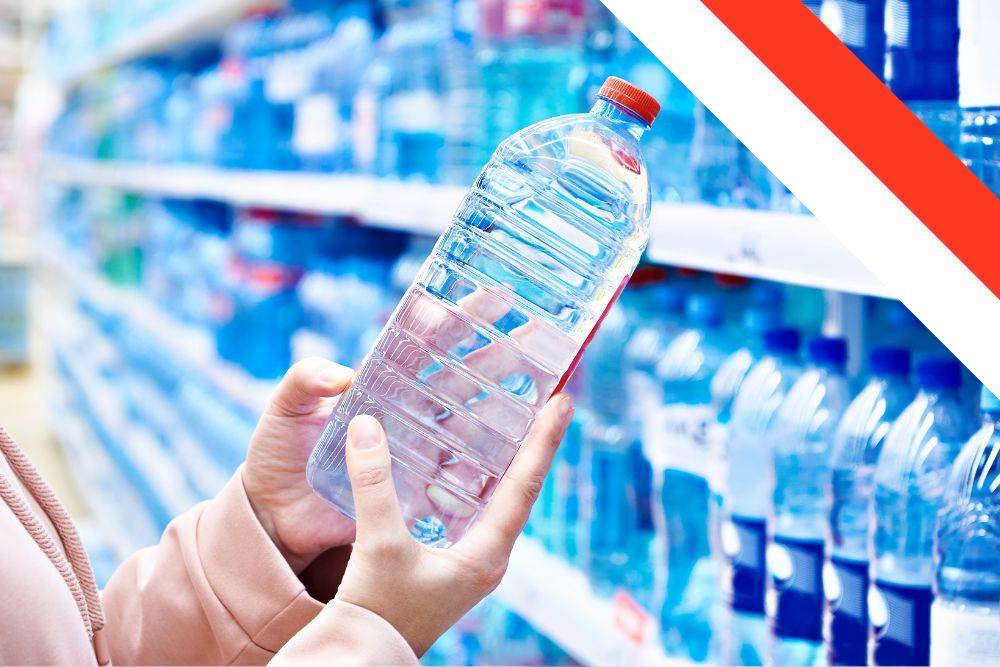The popularity of bottled drinking water in Asia may exacerbate exposure to Bisphenol A (BPA), a potentially harmful chemical.
Professors from Universitas Airlangga (Unair) and Universitas Diponegoro (Undip) expressed this concern about bottled water in a recent health seminar.
Microplastics in Bottled Water
At the seminar held in Jakarta, experts from Unair and Undip presented the results of their latest research. The research showed that BPA, which is often found in polycarbonate plastics and epoxy resins, can leach into bottled drinking water, especially when exposed to high temperatures. In Asia, where ambient temperatures are often high, this risk becomes even more significant.
The researchers observed that bottled water distribution in Asia often involves storage and transport under non-ideal conditions. Additionally, drinking water bottles are often exposed to direct sunlight or stored in hot vehicles, increasing the likelihood of BPA leaching into the water.
Health Effects of BPA
Bisphenol A (BPA) is known as a significant endocrine disruptor, capable of disrupting the body’s hormonal system. Long-term exposure to BPA has been linked to a range of health problems :
- Reproductive Disorders: Exposure to BPA can lead to infertility and other reproductive problems. Research shows that BPA can disrupt ovulation and puberty, potentially causing lifelong effects on reproductive health.
- Cancer Risk: BPA has been linked to an increased risk of breast and prostate cancer. Its estrogen-like structure allows BPA to bind to estrogen receptors and promote cell proliferation, which may contribute to tumour development.
- Developmental Issues: Exposure during critical developmental periods can affect fetal brain development, causing behavioural problems and anxiety disorders in children. BPA can alter structural development and disrupt DNA regulation.
- Cardiovascular Health: Research shows that exposure to BPA may increase the risk of cardiovascular disease, including hypertension and diabetes, especially during pregnancy. BPA can cause oxidative stress and inflammation, leading to long-term heart health problems.
- Metabolic Disorders: BPA exposure has been linked to insulin resistance and metabolic syndrome, suggesting a role in the development of type 2 diabetes and obesity.
Dr Ahmad from Unair emphasised the need for public education on the dangers of BPA and the promotion of safer alternatives. Given the high consumption of bottled water in Asia, the risks associated with BPA exposure are becoming an urgent public health issue. Efforts to raise awareness and implement regulatory measures are essential to reduce these risks and protect public health.
Solutions and Recommendations
Experts recommend several steps to reduce BPA exposure from bottled drinking water. Firstly, bottled water manufacturers are expected to switch to BPA-free packaging materials. Secondly, distribution and storage of bottled drinking water should be done under better conditions to avoid exposure to high temperatures.
In addition, the public is urged to be more selective in choosing bottled drinking water products and pay attention to packaging labels. ‘It is important for consumers to know what they are drinking and choose safe products,’ added Dr Ahmad.
Public Awareness
Asian public awareness of the dangers of BPA is still relatively low. Many consumers do not understand the health risks associated with BPA exposure. Therefore, public education is key in addressing this issue. Effective health campaigns can also help increase public understanding of the importance of choosing safe bottled water products.
Role of Government and Regulation
The government also has an important role in addressing this issue. Strict regulations on the use of BPA in food and beverage packaging can help protect public health. Some countries in Asia have started taking steps to limit the use of BPA, but more needs to be done.
According to Dr Budi from Undip, ‘The government must strengthen regulations and ensure that manufacturers comply with strict safety standards. This is an important step to protect public health.’
Alternative Bottled Water Packaging
In addition to regulation, innovation in packaging materials is also an important solution. The development of BPA-free and environmentally friendly packaging materials can be a safer alternative for consumers. Some manufacturers have started to switch to safer packaging materials, but wider adoption is still needed.
Measures Across Asian Countries
Several countries in Asia have started taking steps to reduce exposure to BPA. In Japan, for example, the use of BPA in food and beverage packaging has been strictly limited. Meanwhile, in South Korea, public health campaigns have successfully raised public awareness about the dangers of BPA.
However, in other countries such as Indonesia and the Philippines, awareness and regulation still need to be improved. ‘We need to learn from countries that have successfully reduced BPA exposure and implement best practices in our country,’ said Dr Ahmad.
Have a pressing question for a doctor? Medical Channel Asia has launched a community forum page where you can get questions answered by a medical specialist. Visit the community forum here.

